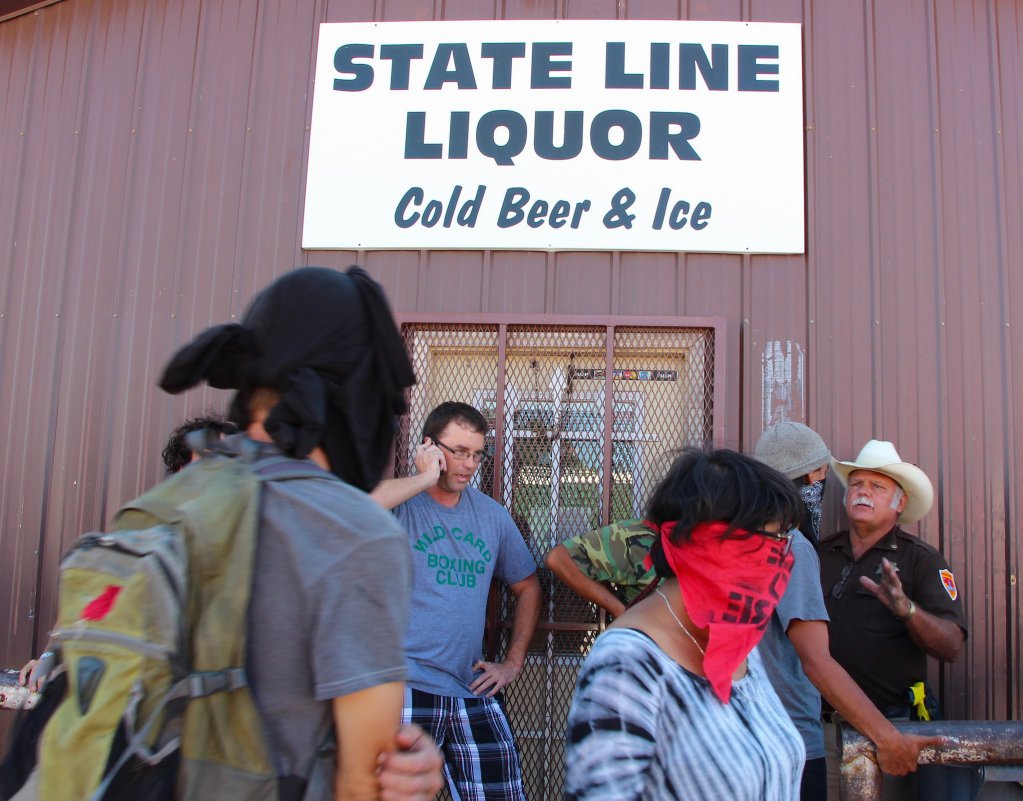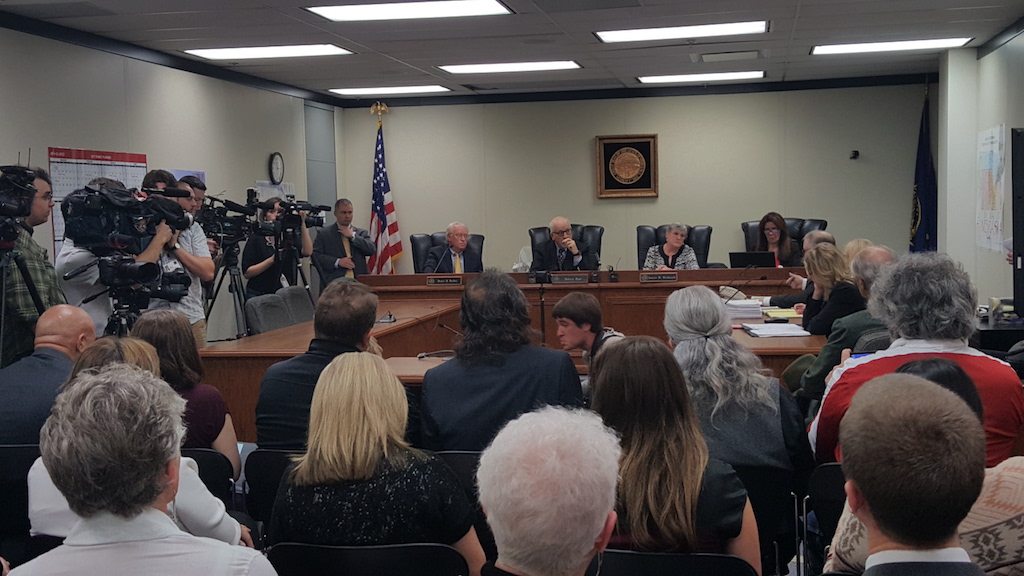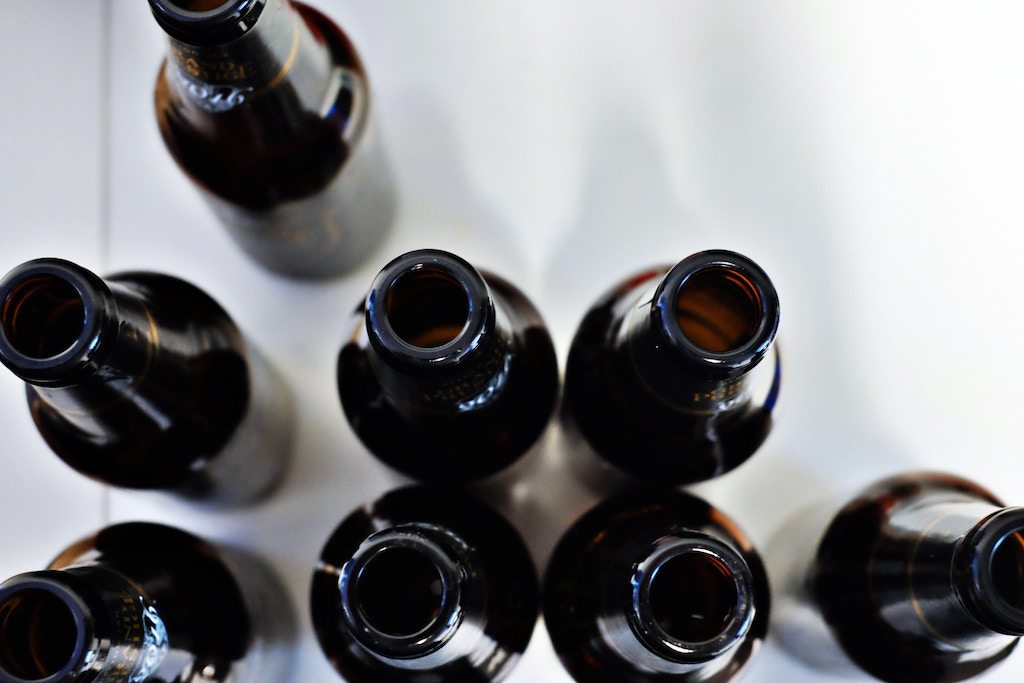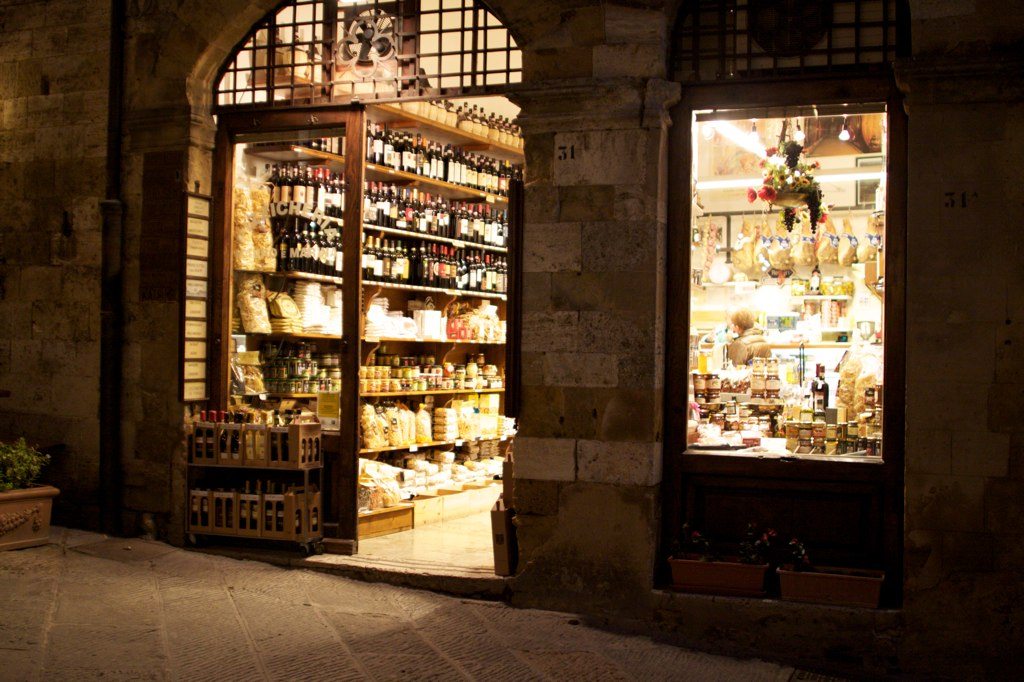Nebraska’s Supreme Court on Tuesday began hearing arguments in an appeal that may end a decades-long battle between members of the Oglala Sioux Tribe and the owners of a handful of beer stores in the neighboring town of Whiteclay, Nebraska.
We wrote extensively in the spring about Whiteclay’s alcohol problem—the town, which is populated by fewer than a dozen people, is home to four establishments that collectively sell millions of cans of beer each year. Most of that alcohol finds its way to the dry Pine Ridge Indian Reservation across the border in South Dakota, where an estimated two-thirds of the population struggles with alcohol dependency.
Defenders of the stores have maintained that alcohol would remain a problem on the reservation whether they stay open or not, and citizens in neighboring towns have expressed concern that closing the stores will lead to an increase in drunk driving incidents as reservation residents travel further to reach another watering hole.
The State Liquor Control Commission in April issued a ruling that finally stanched the flow of beer from Whiteclay to the Pine Ridge. The legal path to the stores’ closure centered around an obscure state rule: In Nebraska, liquor stores can stay open only in places where “adequate law enforcement” guarantees there are enough police nearby to deal with any alcohol-related problems that may arise (public intoxication, driving under the influence, bootlegging, and so on). Whiteclay—with under a dozen residents— doesn’t have a police department.
After a dramatic hearing that involved accusations of fabricating police log books and passionate testimony from Whiteclay residents and the Oglala Sioux attorney general, the Liquor Control Commission ruled unanimously that Sheridan County, where Whiteclay is located, didn’t provide enough police oversight to keep the stores open. The stores have been shuttered since the beginning of May.
In the weeks leading up to the stores’ closure, a rapid volley of appeals and rulings escalated the case all the way to the Nebraska Supreme Court. On Tuesday, the court’s seven justices heard arguments over whether or not the Liquor Control Commission actually had the authority to close the stores in the first place.
Andrew Snyder, the attorney arguing on behalf of the beer store owners, argued that in order deny the appeal, the Supreme Court would have to ignore a 1996 decision in which a judge ruled that liquor licenses “cannot be denied on renewal unless the premises has changed or has somehow become unsuitable to sell alcohol,” the Omaha World-Herald reports. Lawyers for the State of Nebraska and a handful of Whiteclay residents argued that this case departs from the 1996 ruling. They also argued that the beer stores had failed to notify them about the appeal, thereby rendering invalid a Lancaster County judge’s previous decision that the commission had overstepped its authority.
The Nebraska Supreme Court is expected to make its decision in the next two months. Meanwhile, the four beer stores also face charges of 22 liquor law violations brought by the state attorney general’s office. The Liquor Control Commission has not yet held a hearing on those violations.











